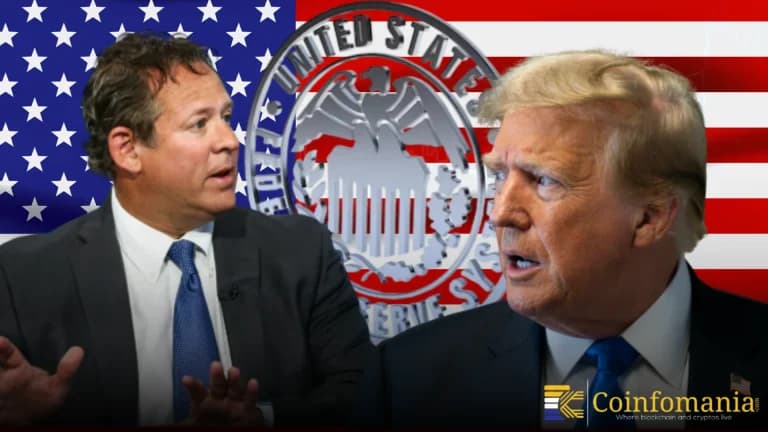Bitcoin (BTC) Faces ECB Blockade as Lagarde Dismisses It as Unsafe
ECB President Christine Lagarde rejects Bitcoin as a reserve asset, citing volatility and regulation while policymakers debate its adoption.

European Central Bank (ECB) President Christine Lagarde ruled out the possibility of Bitcoin becoming part of central bank reserves in member states. She emphasized that reserves must be liquid, secure, and safe, making Bitcoin an unlikely choice. Her remarks came after Czech National Bank Governor Aleš Michl suggested investing in BTC for diversification.
ECB Rejects Bitcoin Over Volatility and Regulation
Lagarde stated that the European Council maintains strict standards for reserve assets. She asserted that BTC does not meet these requirements due to its volatility and lack of regulatory oversight. The ECB president expressed confidence that BTC would not enter the reserves of any bank under the council.
Her comments followed a vote by the Czech National Bank’s board to explore new asset classes. However, the bank did not specify Bitcoin as an option in its diversification plans. Lagarde’s firm stance signals the ECB’s reluctance to embrace cryptocurrencies in its monetary strategy.
The Czech National Bank’s board approved a plan to assess different asset classes for reserves. Governor Michl has expressed interest in Bitcoin, but the central bank has not committed to any crypto investments. The board’s decision reflects a broader trend of exploring alternatives to traditional assets.
Despite growing interest in Bitcoin as a hedge against inflation, European policymakers remain cautious. The lack of regulatory clarity and concerns over security continue to hinder Bitcoin’s acceptance in central banking. Michl’s openness to BTC may face resistance from the ECB and other European institutions.
Coinbase CEO Urges Bitcoin Reserves for Stability
The discussion on Bitcoin as a reserve asset has gained momentum worldwide. Following Donald Trump’s election win, U.S. lawmakers in several states have proposed legislation for Bitcoin stockpiles. Some states, including Texas and Arizona, have introduced bills supporting a national BTC reserve.
Coinbase CEO Brian Armstrong recently urged policymakers to consider BTC reserves to protect against economic instability. Meanwhile, El Salvador remains one of the few nations actively stockpiling Bitcoin. In Europe, some politicians have shown support for Bitcoin, but central banks remain hesitant.
While some leaders advocate for BTC’s adoption, others continue to resist. The ECB’s stance highlights a deep divide between traditional financial institutions and the emerging crypto economy. Bitcoin’s role in national reserves remains uncertain as regulatory and economic debates continue.
FAQs
Lagarde stated that BTC is too volatile and lacks regulatory oversight, making it unsuitable for central bank reserves.
No, the Czech National Bank voted to explore new asset classes but did not specifically include BTC in its plans.
Some policymakers see BTC as a hedge against inflation and economic instability, leading to discussions on its adoption.
Follow us on Google News
Get the latest crypto insights and updates.


